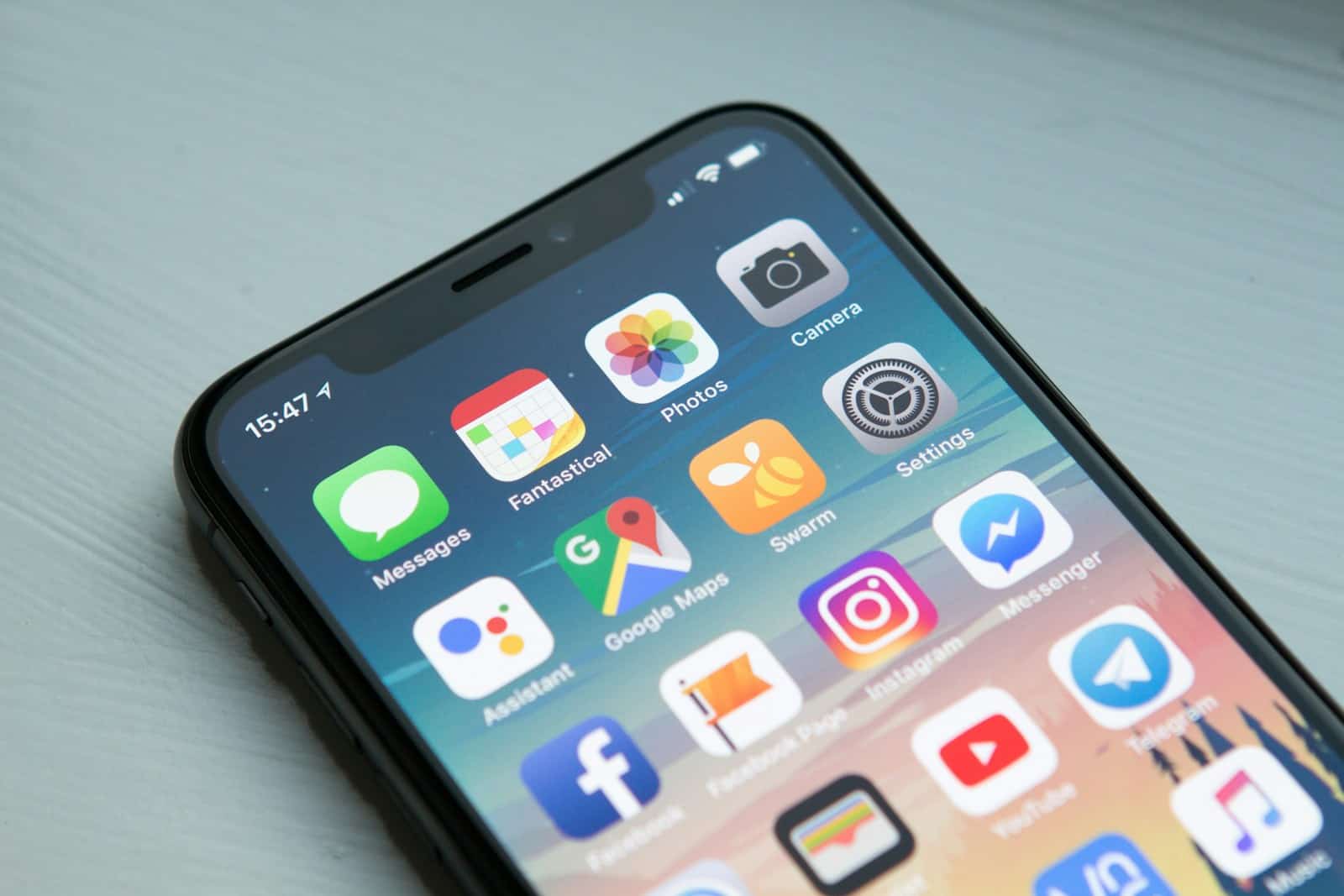Is your phone running slower than usual? You’re not alone. Many smartphone users experience sluggish performance over time. The main causes of a slow phone include insufficient storage space, outdated software, and too many background apps running simultaneously.
A cluttered device with limited free storage can significantly impact speed. Apps and the operating system need room to function properly. Outdated software may contain bugs or inefficiencies that slow down your phone. Running numerous apps in the background consumes valuable system resources.
Fortunately, several simple steps can help speed up a slow phone. Clearing cache, updating the operating system and apps, and removing unused applications can make a noticeable difference. Freeing up storage space and limiting background processes also improves overall performance.
Why is My Phone So Slow?
A slow phone can be frustrating. It can make it difficult to use apps, browse the web, and even make phone calls. There are a number of reasons why your phone might be slow, but here are some of the most common:
1. Your phone is old.
As phones age, their hardware can start to slow down. This is because the processor, memory, and storage in older phones are not as powerful as the components in newer phones.
2. You have too many apps running.
When you have a lot of apps running in the background, it can use up your phone’s resources and make it slow down.
3. Your storage is full.
If your phone’s storage is full, it can also slow down your phone. This is because the phone has to work harder to find and access files when there is not much free space.
4. Your battery is low.
When your phone’s battery is low, it can also slow down your phone. This is because the phone is trying to conserve power.
5. You have a virus or malware.
If your phone has a virus or malware, it can also slow down your phone. This is because the virus or malware can use up your phone’s resources and interfere with its performance.
6. You have a weak internet connection.
If you have a weak internet connection, it can also slow down your phone. This is because the phone has to work harder to load web pages and download data.
7. You are in a hot environment.
If you are in a hot environment, it can also slow down your phone. This is because the phone’s processor can overheat and slow down.
| Potential Cause | Explanation |
|---|---|
| Old phone | Hardware limitations |
| Too many apps running | Consuming resources |
| Full storage | Reduced access speed |
| Low battery | Power conservation mode |
| Virus/malware | Interference with performance |
| Weak internet connection | Slow data loading |
| Hot environment | Processor overheating |
If you are experiencing a slow phone, there are a few things you can do to try to speed it up. You can close apps that you are not using, delete files that you don’t need, and update your phone’s software. You can also try restarting your phone or resetting it to factory settings. If you are still having problems, you can contact your phone’s manufacturer for support.
How to Speed Up Your Phone
- Close unused apps: Regularly close apps running in the background to free up resources.
- Free up storage: Delete unnecessary files, photos, and videos to create more space.
- Update software: Keep your phone’s operating system and apps updated to the latest versions.
- Restart your phone: A simple restart can often resolve temporary performance issues.
- Factory reset: As a last resort, consider resetting your phone to factory settings (remember to back up your data first).
Key Takeaways
- Low storage, outdated software, and background apps slow phones down
- Clearing cache and updating software can improve phone speed
- Removing unused apps and limiting background processes boosts performance
Diagnosing the Cause of Slowness
A slow phone can stem from various issues. Identifying the root cause is crucial for effective troubleshooting and performance improvement.
Insufficient Storage Space
Limited storage space often causes phone slowdowns. When a device’s storage is nearly full, it struggles to perform basic tasks. Users should check their available storage in the Settings app. Deleting unused apps, photos, and videos can free up space quickly. Moving files to cloud storage services like Google Drive or Dropbox is another effective solution.
Clearing app caches can also reclaim storage. This process removes temporary data without deleting important information. Some phones have a built-in storage analyzer to identify space-hogging apps and files.
Outdated or Malfunctioning Software
Software issues frequently lead to sluggish performance. Outdated operating systems may lack crucial optimizations and security patches. Users should check for system updates in their phone’s Settings menu.
App updates are equally important. Older versions may contain bugs or compatibility issues. Enabling automatic updates ensures apps stay current.
Malware can severely impact phone speed. Installing a reputable mobile security app helps detect and remove harmful software. Users should only download apps from official stores to minimize risk.
Hardware Limitations and Health
Aging hardware can cause slowdowns. Older phones may struggle with newer, more demanding apps and operating systems. In some cases, upgrading to a newer device might be necessary.
Battery health directly affects performance. As batteries degrade, phones may throttle performance to conserve power. Users can check battery health in Settings on many devices.
Overheating can also slow down phones. Closing unused apps and avoiding direct sunlight can help maintain optimal temperature. If persistent overheating occurs, professional inspection may be required.
Improving Phone Performance
Enhancing your phone’s performance involves optimizing settings and implementing regular maintenance routines. These strategies can significantly boost speed and responsiveness.
Optimizing Phone Settings
Start by checking your Wi-Fi connection. A slow internet connection can make your phone seem sluggish. Test your network speed and consider switching to a different Wi-Fi network if available.
Disable automatic app updates. Go to your app store settings and turn off auto-updates. This prevents unexpected background processes from slowing down your device.
Adjust your phone’s animation settings. Reducing or turning off animations can make your device feel snappier. On Android, find this option in Developer Settings.
Review your power-saving mode settings. While these modes conserve battery, they can also limit performance. Disable them when you need full speed.
Regular Maintenance and Upkeep
Clear app caches regularly. This frees up storage space and can resolve app-specific performance issues. Go to Settings > Apps and clear cache for individual apps.
Uninstall unused apps. These take up storage and may run background processes. Review your app list and remove anything unnecessary.
Update your operating system and apps. New versions often include performance improvements and bug fixes. Check for updates in your phone’s settings and app store.
Restart your phone weekly. This clears temporary files and refreshes system processes, often resolving minor performance issues.
Consider a factory reset if problems persist. Back up your data first, then reset your phone to its original state. This can resolve deep-seated software issues affecting performance.
Frequently Asked Questions
Phone performance issues can stem from various factors. Understanding these causes and implementing targeted solutions can help restore your device’s speed and responsiveness.
How can I identify the cause of my phone’s slow performance?
Check your phone’s storage space. Low storage can slow down your device. Remove unused apps and files to free up space.
Monitor battery health. Aging batteries often lead to slower performance. Replace the battery if it’s old or degraded.
Look for resource-intensive apps. Some apps consume more power and memory. Uninstall or limit their usage to improve speed.
What steps can I take to fix a slow Apple iPhone?
Update iOS to the latest version. New updates often include performance improvements and bug fixes.
Clear Safari cache and browsing data. This can speed up web browsing and free up storage space.
Reset all settings. This can resolve software-related issues without erasing your data.
What could be the reason for a Samsung phone’s sluggishness?
Bloatware can slow down Samsung devices. Disable or uninstall pre-installed apps you don’t use.
Animations and visual effects may impact performance. Reduce or turn off these features in the settings.
Check for malware. Use built-in security features or trusted antivirus apps to scan for and remove threats.
What actions should be taken when an Android phone becomes slow and unresponsive?
Restart your phone. This simple step can resolve many performance issues.
Clear app caches. Go to Settings > Apps and clear cache for individual apps or all apps at once.
Use safe mode to identify problematic apps. If performance improves in safe mode, a third-party app may be the culprit.
How can internet speeds on my mobile device be improved?
Switch to a 5G or faster 4G LTE network if available. Faster networks can significantly boost internet speeds.
Clear your browser cache and cookies. This can help web pages load faster.
Use a content blocker to reduce data usage and speed up page loading.
Why does my phone experience a sudden drop in performance?
Software updates can temporarily slow down your phone. Give it time to optimize after an update.
Background app refresh might be consuming resources. Disable this feature for apps that don’t need constant updates.
Extreme temperatures can affect performance. Avoid exposing your phone to very hot or cold conditions.







